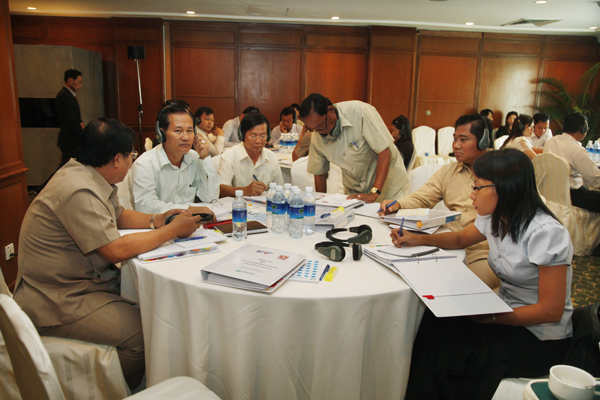UN News Centre17 June 2010 – An independent United Nations expert today urged Cambodian authorities to strengthen the country’s judiciary and improve human rights, saying the nation still has too many shortcomings in its justice system.
“There is an alarmingly high number of people in detention due to various shortcomings in the criminal justice system, and the instances of miscarriage of justice are far too numerous,” Surya Prasad Subedi, the UN Special Rapporteur on the situation of human rights in Cambodia, warned at the end of his 10-day fact-finding mission.
“I call on the Royal Government of Cambodia to introduce appropriate measures to enhance the independence and capacity of the judiciary to enable it to function as an institution capable of providing justice to all in Cambodia,” he stated in a news release.
The expert concluded that Cambodia’s judiciary is facing tremendous challenges in delivering justice for its people, especially the poor and the marginalized.
He raised specific concerns relating to the judiciary’s role in protecting freedom of expression, and the narrowing of political space for critical debate in society, “due to the disproportionate use of defamation, disinformation and incitement lawsuits against journalists, human rights activists and political opponents.”
Another major concern was cases involving land-related rights. “If you are poor, weak and dispossessed of your land, you seem to have limited chance to obtain redress either through existing administrative land management systems, or through the courts,” said Mr. Subedi.
The Special Rapporteur welcomed the adoption of a series of new laws designed to strengthen the system of justice.
However, he warned that “a combination of a lack of adequate resources, organizational and institutional shortcomings, a lack of full awareness of the relevant human rights standards, and external interference, financial or otherwise, in the work of the judiciary, has resulted in an institution that does not command the confidence of people from many walks of life.”
Mr. Subedi, who met with King Norodom Sihamoni and members of the Government and judiciary during his visit, encouraged the Government to forge ahead with measures to enhance and strengthen the judiciary and to improve the situation of human rights, and offered his assistance for such efforts.
He will submit a report, including recommendations for judicial reform in Cambodia, to the Geneva-based UN Human Rights Council in September.







































